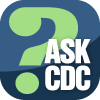So Your Child Wants a Dog…
[Announcer] This podcast is presented by the Centers for Disease Control and Prevention. CDC – safer, healthier people.
Welcome to Ask CDC, the weekly podcast that answers your questions. I'm your host, Susan Laird.
Our question this week is from a mom whose child is begging to get a dog. She’s concerned that having a dog is unsafe because she’s heard so much in the news about dog bites.
Each year, 800,000 Americans seek medical attention for dog bites – half of these are children. Of those injured, 386,000 require treatment in an emergency department and about 16 die. The rate of dog bite-related injuries is highest for children ages 5 to 9 years, and the rate decreases as children get older.
CDC is committed to helping children grow up safe and healthy. Dog bites are a largely preventable public health problem and adults and children can reduce their chances of being bitten.
Here are some things to consider before you get a dog:
• Consult with a professional – a veterinarian, animal behaviorist, or a responsible breeder – to learn about suitable breeds of dogs for your household and lifestyle.
• Realize that dogs require training, socialization, discipline, and healthcare to be good family members. Plan for these before committing to get a dog.
• Dogs with a history of aggression are inappropriate in households with children.
• Be sensitive to cues that a child is fearful or apprehensive about a dog and, if so, delay getting a dog.
• Spend time with a dog before buying it or adopting it. Use caution when bringing a dog into the home of an infant or toddler.
• Any dog of any breed has the potential to bite.
Here are some steps you can take to prevent dog bites:
• Spay or neuter all dogs, as this frequently reduces aggressive tendencies.
• Never leave infants or young children alone with any dog.
• Don’t play aggressive games with your dog, like wrestling or tug of war.
• Properly socialize and train any dog entering the household. Teach the dog submissive behaviors, like rolling over to expose their abdomen and giving up food without growling.
• Immediately seek professional advice if the dog develops aggressive or undesirable behaviors.
Be sure to teach children basic safety around dogs and review these lessons with them regularly:
• Don’t approach an unfamiliar dog.
• Don’t scream around or run from a dog.
• Remain motionless – be still like a tree – when approached by a strange dog.
• If knocked over by a dog, roll into a ball and lie still protecting your head and neck with your arms – be still like a log.
• Don’t play with a dog unless supervised by an adult.
• Immediately report stray dogs or dogs displaying unusual behavior to an adult.
• Avoid direct eye contact with a dog.
• Don’t disturb a dog who is sleeping, eating, or caring for puppies.
• Don’t pet a dog without allowing it to see and sniff you first.
• If bitten, immediately report the bite to an adult.
Dogs can make wonderful pets, but be sure to follow these rules for your child’s safety and your own.
For more information, visit our website at www.cdc.gov and search for “dog bites” or call 1-800-CDC-INFO.
Thanks for listening. To submit your question to Ask CDC, email us at askcdc@cdc.gov.
[Announcer] For the most accurate health information, visit www.cdc.gov or call 1-800-CDC-INFO, 24/7.


